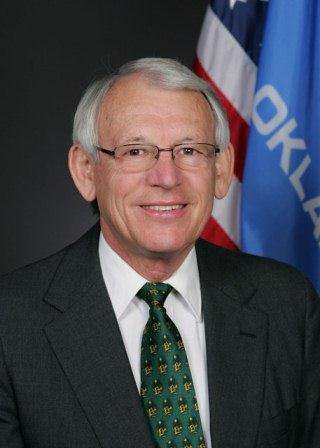Inspired by Erin’s Law, child sexual abuse and assault prevention legislation moves forward
 Sen. Wayne Shaw
Sen. Wayne Shaw
Legislation aimed at educating children about sexual abuse and prevention has passed the Senate Education committee, clearing another hurdle and moving one step closer to becoming a law, according to State Senator Wayne Shaw, R-Grove.
Senate Bill 303, co-authored by Shaw and Rep. Lee Denney, R-Cushing, creates an age-appropriate sexual abuse prevention curriculum designed to teach children to recognize personal boundaries, give them the skills to avoid abuse, and encourage them to report abuse. The program encompasses students in kindergarten all the way through 12th grade, and would include age-appropriate training for teachers and guidelines for parents to follow when talking with children about sexual abuse.
Similar legislation in other states has been inspired by the story of sexual abuse survivor, Erin Merryn, as she launched an effort nationwide to encourage state legislators to pass stronger laws and create programs designed to protect and empower children against abuse. Merryn was sexually abused for more than six years, first by a neighbor and later by a family member. To date, 20 states have already passed Erin’s Law or comparable laws to build programs for sexual assault prevention, and several more are considering similar legislation this year.
“Statistics show that only 29 percent of parents talk to their kids about sexual abuse, and even
when they do, it’s rarely with kids under the age of nine,” said Shaw. “This highlights the dire need for programs to help all kids, but especially the younger set. They need to be educated and empowered when it comes to knowing how to report abuse.”
SB303 allows parents to review the teaching materials and even gives them the option to exclude their child from the program, but Shaw encourages parents to participate in the awareness programs, because it will reinforce what diligent parents have already taught their children. He reminds that this is not sex education, it is teaching boundaries.
“I’ve heard concerns that it’s not the state’s job to provide sex education to our children, but that’s not what SB 303 is,” said Shaw. “This is simply showing the difference between right and wrong touch, safe and unsafe secrets, and teaching children how to identify what’s okay and what’s not. We teach stranger danger, but only 7 percent of assaults involve unknown assailants. The other 93 percent of sexual abuse cases are situations where the victim knows the offender, who could be a relative, a neighbor, or even a coach.”
Shaw notes statistics released by Help in Crisis in Tahlequah where last year in July and August the group conducted 70 forensic interviews and 60 of those cases involved victims under 12 years old.
“The findings are sobering,” said Shaw. “It should be our goal to empower young sexual assault victims to break their silence and stop the cycle of abuse. To do that, we must give them the skills and confidence to identify when they need to speak up and seek help.”
Echoing the importance of such abuse awareness programs for children of all ages, Rep. Denney stressed SB 303 is a crucial first step in educating Oklahoma’s children about sexual abuse and raising awareness.
“One in four girls and one in six boys are sexually abused by the time they’re 18 years old, robbing them of their innocence and often setting them on a path of self-destruction as they struggle with the fallout of abuse,” said Denney. “Abusers will threaten their victims into silence, so teaching our children how to ‘get away and tell today’ is a crucial first step in giving them the tools to recognize when a situation could potentially be dangerous and abusive.”
 Oklahoma Senate
Oklahoma Senate

